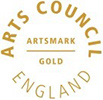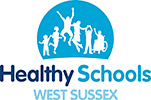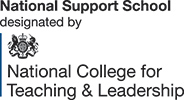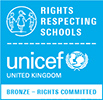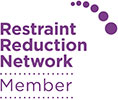Foundation Stage Policy
Our Mission Statement
Our school is a place where everyone is treated equally, encouraged and respected. We believe that all children should be able to reach their full potential academically, emotionally and socially. We are committed to our school being a safe and inclusive place where learning is nurtured and encouraged in a happy, caring and fun environment. We work for our school to be a happy place where all children enjoy their educational journey.
Aims
At Manor Green Primary we aim:
- To make children’s first experience of school is happy, positive and fun.
- To ensure that all children feel secure and valued.
- To provide a broad and balanced curriculum by well planned activities covering all areas of learning and development.
- To provide a rich and varied indoor and outdoor learning environment.
- To provide a balance of adult led, adult directed and self-initiated child led activities.
- To establish positive relationships with parents.
- To make careful observations and develop an Individual Learning Plan (ILP) of next step targets to support and extend the children’s learning and ensure progress.
- To ensure the children’s individual special educational needs are identified and receive appropriate support.
The Early Years Foundation Stage (EYFS) applies to all children from birth to the end of the reception year. The EYFS profile is an inclusive assessment, capable of capturing a wide range of children’s learning and development outcomes.
The EYFS is based upon four themes:
- A Unique Child
- Positive Relationships
- Enabling Environments
- Learning and Development
These themes are all important as they all combine to ensure young children make good, strong progress in their earliest years. This stage in life is the most important as children’s mind and bodies grow and develop most from birth to age 5.
At Manor Green Primary the Foundation Stage comprises of one generic mixed nursery and reception class and one additional needs class catering for children with significant autism. Each class is led by a qualified teacher, supported by a team of special support assistants. There is also an early years HLTA who supports across both classes. Staff are fully qualified, have a wide range of experience and expertise in working with and educating children with a range of additional needs.
In the Foundation Stage we acknowledge the potential for learning in every activity and situation that arises. Our aim is to provide a secure and stimulating environment in which children flourish and learn. Our activities provide first hand experiences through play and discussion; children are encouraged to interact with others, to move about and to explore a variety of learning situations. There are well planned areas of provision in the wide range of activities, resources and materials available. Opportunities are provided for sustained activity and continuous provision, as well as spontaneous, self-chosen activities. It is important to us that children experience success, have fun and enjoy themselves whilst learning.
EYFS Areas Of Learning
The Early Years Foundation Stage is a curriculum from birth to five years old, we follow the strands set by this curriculum and concentrate on the three characteristics of learning and the seven areas of learning.
The Characteristics of Effective Learning:
- Play and exploring (engagement) – finding out and exploring, using what they know in their play, being willing to have a go.
- Active learning (motivation) – being involved and concentrating, keeping on trying, enjoying achieving what they set out to do.
- Creative and critical thinking – having their own ideas, using what they know, choosing ways to do things and finding new ways.
Playing and exploring, active learning, and creating and thinking critically support children’s learning across all areas.
The seven areas of learning and development:
Prime: Specific:
1) Personal Social and Emotional Development 1) Literacy
2) Physical Development 2) Mathematics
3) Communication and Language 3) Understanding of World
4) Expressive Art and Design
At Manor Green Primary School we believe these 7 areas are equally important and depend on each other to support a rounded approach to child development. We aim to deliver all of these areas through planned purposeful play, with a balance of adult and child initiated activities. We set realistic yet challenging expectations to meet the needs of our children. We achieve this by planning to meet the needs of all ability groups, boys and girls, children from all social and cultural backgrounds, children of different ethnic groups and those from diverse linguistic backgrounds.
Personal Social And Emotional Development
This area of learning is broken down into the following sub categories: making relationships, self-confidence and self-awareness and managing feelings and behaviour. PSED involves helping children to develop a positive sense of themselves and others, to form positive relations with staff and children, to develop social skills and learn how to show a range of emotions and to manage their feelings and behaviour. The school fosters and develops relationships between home, school and nurseries in order to make links stronger. Children are encouraged to learn to work, share, take turns and to co-operate with others. They are encouraged to be independent and to make choices for themselves. They are also encouraged to be sensitive to the needs of others and to respect other cultures and beliefs.
Physical Development
This area of learning is broken down into the following sub categories: Moving and Handling and Health and Self-Care. PD involves providing opportunities for young children to be active and interactive; and to develop their coordination, control and movement. Appropriate equipment will be provided to allow each child to access and range of physical activities. Some children (depending on their statement) will have the opportunities to go to hydrotherapy or to take part in rebound therapy. Children who have physiotherapy plans will have regular opportunities to carry out their exercises both in class and during individual physiotherapy sessions. Children are also encouraged to develop their fine and gross motor skills. This is done in both indoor and outdoor environments and by working with a wide range of resources.
Communication And Language
This area of learning is broken down into the following sub categories: Listen and Attention, Understanding and Speaking. CL involves giving children opportunities to experience a rich language environment – this could be through signing, symbols, PEC’s, switches or any individual ways that children may use to communicate. It also involves allowing children to develop their confidence and skills in expressing themselves; and to communicate and to listen in a range of situations. We aim to enrich the children’s language and communication through story time, rhymes and role-play.
Literacy
This area of learning is broken down into the following sub categories: Reading and Writing.
Involves encouraging children to explore sounds, letters and various ways of mark making; this can include in sensory materials such as sand or shaving foam.
Mathematics
This area of learning is broken down into the following sub categories: Number and Shape, Space and Measure.
Involves providing children with opportunities to develop and improve their skills in number, daily routines, object permanence, shape, colour and water play.
Understanding the World
This area of learning is broken down into the following sub categories: People and Communities, The World and Technology.
Involves guiding children to make sense of their physical world and their community through opportunities to explore, observe and find out about people, places, technology and the environment.
Understanding the World
This area of learning is broken down into the following sub categories: Exploring and Using Media and Materials, Being Imaginative.
Involves enabling children to explore and play with a wide range of media and materials, as well as providing opportunities and encouragement for sharing their thoughts, ideas, and feelings through a variety of activities in art, music, movement, dance, role-paly and design and technology.
Outdoor Learning
The two early year’s classes both have fully equipped outdoor areas. There each area is split into two to have a focussed learning area; where more adult led learning activities can take place. Outdoor learning and exploration is essential in the Early Years. We have all weather clothing and ask for parents to send in wellie boots so children are protected and there are no barriers to learning. The outside area is an extension to the classroom and there is a variety of resources to facilitate learning. In this area EYFS staff provide planned activities for children as well as give opportunities for the children to make their own choices and to explore the range of great equipment and resources available to them.
Planning
Planning in the EYFS is based around the children’s interests. We really value the importance of children enjoying their learning. The Early Year’ team meet weekly to plan; ensuring there is consistency in provision across both classes.
- Long term planning: there are long term and continuous provision plans linked to the Stages of Development and Early Learning Goals which form the broad framework of learning objectives for the EYFS. This includes a range of activities and experiences which offer a balance of learning across the seven areas of learning.
- Medium term planning: half termly themes/weekly topics are planned based around children’s interests, as well as incorporating the characteristics of effective learning and the seven areas of learning and development. Activities are linked to learning objectives based on individual needs.
- Short term planning: weekly plans link activities to learning objectives and targets in the seven areas, focussing on day to day teaching; allowing for revision and modification of learning activities informed by on-going assessments and observations. These plans show how adults are deployed to focus on targeted groups or individual children for guided differentiated teaching, and how independent learning activities can be managed. These plans will link to the medium term plans.
- Individual learning plan (ILP): each child will have an ILP identifying next step targets in each of the seven areas of learning and development (and linked to their statement of Special Education Need where appropriate). Targets will be linked to descriptors in the EYFS stages of development which will focus on developing their play/learning skills across the seven areas of learning and linked to the three characteristics of learning.
Where appropriate discussions with the Speech and Language Therapist, Occupational Therapist and Physiotherapist will ensure children’s individual needs are being met through some direct therapy and integrated work in the classroom. Programmes will be planned in conjunction with teachers, parents and staff. All children have regular access during school times to the soft play room and light and sound (multisensory) room and depending on their statement some children will receive hydrotherapy and rebound therapy.
Assessment of Children, Record Keeping and Reporting
All observations and assessments are an integral part of teaching as they inform future planning for children’s needs and enable staff to set and review targets. The Early year’s classes use the whole school assessment system called Evidence for Learning; which has the early year’s development matters curriculum embedded into it.
- Observations are carried out and recorded as part of ongoing classroom activities.
- Planned observations are carried out during child and adult directed activities in order to assess children’s learning and development and to inform next steps in learning.
- Children’s progress and targets are shared with parents/carers.
- ILP targets are reviewed each term and next steps of learning plans according to the child’s individual needs.
- Learning journals: Each child is unique and learning will take place with the child at the centre. Each child will have a learning journal which will include information about their learning and development; this is shared between parents, professionals and staff. Progress towards the stages of development and early learning goals will be tracked and evidenced across all seven areas of learning.
- Each child will have a celebration folder to keep hard copies of actual work such as art work or mark making/writing.
As each child enters the Foundation Stage we use our professional judgement to assess the age band children are working within across the EYFS 17 areas of learning. Within 6 weeks of the child starting they will be given a ‘baseline’ assessment.
Formative assessment:
As the year progresses children are monitored in their development and progress in all of learning and development. Examples of children’s learning, showing their individual level and stage of development are built up throughout the year. Provision is made for these observations and assessments through experience and play. Progress is recorded by observing and assessing children; which is then compiled in to their individual learning journal. Children in the early year’s department access a high-quality early years provision based on the EYFS framework, its principles and commitments. We gather observations using the app called Evidence for Learning. This app improves the quality and consistency of formative assessment which shows progress tracking from nursery until the end of reception. The Early Years part of the app provides a simple and powerful way to log children’s achievements against the Early Years profile in a few simple steps, making it ideal for our early year’s practitioners to track outstanding progression.
Assessments will be based primarily on observation of daily activities and events. Practitioners will note in particular the learning which a child demonstrates spontaneously, independently and consistently in a range of contexts. Accurate assessment will take account of a range of perspectives including those of the child (where possible), parents/carers and other adults who have significant interactions with the child (this could include speech and language therapists or play therapists).
Observational assessment is the most effective way of making judgements about all children’s learning and development. Depending on their special educational need, children will demonstrate their learning and development in different ways. We as practitioners at Manor Green who observe the children on a day to day basis take in to account the following:
- Where any item in the EYFS Profile contains the words ‘talks’ or ‘speaks’ children can use their established or preferred mode of communication; and
- The need to be alert to the child demonstrating attainment in a variety of ways, including eye pointing, use of symbols and signs.
Any adaptations needed by children to carry out their activities, such as mobility aids, magnification, brail or adapted ICT equipment, is employed by all early years practitioners here at Manor Green, to enable children in reaching their full potential.
Summative data:
At the end of a child’s reception year we will assess the children against the EYFS Profile Early Learning Goals, stating whether they are emerging, expecting or exceeding levels of development. These scores get sent off to West Sussex County Council and parents receive a written report from the early year’s teacher summing their child’s learning and development up against the three characteristics of effective learning.
Parents/carers as Partners
It is vital that communication between all professionals and child’s parent is strong so that a clear picture is gained of the child’s learning and development. Children learn best when there are strong links between home and school, and the importance of parental involvement is recognised, valued and developed. Parents at Manor Green are included in their child’s learning journey through the opportunity to contribute ‘wow’ moments in their child’s learning book. Parents are also able to view their child’s learning journal through the Evidence for Learning app; teachers parent share at least once weekly.
At Manor Green we really do value parent’s involvement in school. Parent’s involvement in school begins even before children start in our nursery or reception class, with a visit to see the school, meet the teacher and other staff. Once a place has been confirmed the early year’s class teacher will arrange a transition day at Manor Green where the children and parents will come for a “stay and play” session. This is a great opportunity for parents/keyworkers to discuss the child’s needs in more detail, see the setting and meet other children and parents.
Parent consultation meetings are held in the Autumn, Spring and Summer term, in which parents/carers are invited to discuss their child’s ongoing progress. Every year each child has an annual review. This is a review of the Early Health and Education Care plan (EHCP). A report is written by the class teacher, this is sent home, and then parents are invited to an annual review meeting to discuss this further with the Head teacher and class teacher.
Parents are kept informed about all happenings of the school by weekly newsletters, notices up in the school and via the school website and Facebook page. Each class teacher will type up a weekly overview giving a quick breakdown of what learning will take place that week; these will be stapled into the children’s blue home school communication book which goes between school and home each day.
Lunch and Snack Times
Healthy snack items such as fruit, raisins, rice cakes or breadsticks are supplied by the school for snack, along with milk, juice or water to drink. We understand that some children have a limited diet or may not like some or all of the snacks we offer, therefore parents are welcome to send in snack for their child in these cases. Reception aged children have the opportunity to stay for lunch. This decision is made along with parents in deciding whether their child is ready for this or not. Also whether lunchtimes are gradually introduced and built up slowly to begin with or whether staying full time is an immediate option. They have a choice of bringing a packed lunch to school or having a school dinner. All reception aged children are entitled to a universal free school dinner. All staff in the Early Years Unit will be confident in knowing about each child’s specific dietary needs and requirements.
Photographs/videos
Prior to children starting here at Manor Green, parents/carers are asked to give their permission for their child to be photographed or videoed during their time at school. We use these images in the classroom, on displays, on the school newsletter and website. Separate permission will also need to be given for children to have their image used on our school Facebook page.
Medical Needs
At Manor Green we are lucky enough to have our own nurse (Catia) based in the school. She oversees all medical needs and meets with all parents prior to children starting so that we are fully aware of all medical history and needs. Each early year’s class has staff who hold a paediatric first aid qualification. All of the early years team will be aware of the children’s medical needs and requirements and will be confident with dealing with situations may they arise.
Transition
At Manor Green we believe that we should be prepared for the children entering each stage of their learning.
In the EYFS we acknowledge the following transitional stages:
- Home to Nursery
- Nursery to Reception
- Reception to Year 1
We believe that the best early years practice sees learning as a continuum and that our role is to smooth the way between the child’s home experience, EYFS curriculum and stages; ensuring that the curriculum we provide in key stage one reflects our understanding of the children as learners. We aim to fit the curriculum to the child and not try to fit the child to the curriculum.
At Manor Green we are committed to the EYFS and we believe it is essential that children who enter both Nursery and Reception to receive their full entitlement to the EYFS. The Foundation Stage provided the firm foundations upon which all subsequent learning builds. Transition is managed in a thoughtful and planned way, taking account of the needs of the young learner.
Our aims are to:
- Experience smooth transition periods
- Receive the EYFS for the duration of year N (nursery) and year R (reception)
- Children experience a curriculum suited to their individual needs.
- Continue to have opportunities for structured play in year 1, as appropriate.
- Continue to experience teaching that reflects a variety of preferred learning styles.
Teachers meet in the summer term to discuss the children they will be ‘handing over’. Teachers will inform their colleague about the child’s academic abilities, specific needs and any other relevant information. During the Autumn term, the children transitioning into Year 1, will continue to follow the EYFS and teaching and learning strategies for the first 6 weeks. During this transition period, teachers will assess the children using the early learning goals and marry these up with the stages of development using the progress review sheet.
Children who are new to the early year classes will be invited for a taster session in the summer term to spend some time in their new class and to meet the teaching staff. Parents will also be invited to attend a meeting with the Head Teacher and Early Years Leader prior to their child starting. During this meeting you will be given further information about purchasing uniform and where to get information regarding transport. Parents will also have the opportunity to ask any remaining questions or queries that they might have. Children are our number one priority here at Manor Green and their best interests are always taken into consideration.
Monitoring and Review
The effectiveness of this policy will be monitored and evaluated by the Head Teacher and EYFS leader, and will be reviewed on an annual basis.
Signed: Miss C Archer (Claire Archer: Early Years Lead)
Signed: Mr D Reid (David Reid: Head Teacher)



